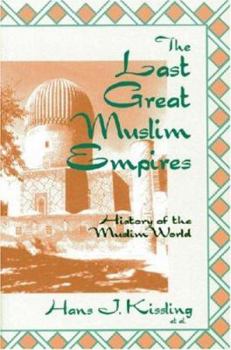The Last Great Muslim Empires: The Last Great Muslim Empires:
Select Format
Select Condition 
Book Overview
"Islamic history feeds into world history ... Islamic civilization became a global phenomenon, for example, in its capacity to receive and absorb culture from one end of the world and then pass it on to other parts of the world. One sees this in the rapid movement, within the Islamic world, of paper-making or irrigation technology, of herbs and agricultural crops, or of scientific knowledge, especially mathematics, astronomy, and medicine. Demographically, too, Islam became a global reality. Although the religion is stereotypically identified as peculiarly and especially Middle Eastern, the worldwide distribution of the world's one billion Muslims - more than two thirds of whom live outside of the Middle East - tells quite a different story.





